The UAE, along with many other Middle Eastern countries, is rapidly embracing the global shift toward sustainable transportation, becoming a key player in the electric vehicle (EV) revolution. With government initiatives, customer interest, and technological advancements aligning, the future of EVs in the UAE looks promising. This article will explore trends, challenges, and predictions for electric cars in 2025 in the UAE, answering the most pressing questions about the industry.
Electric Car Trends in the UAE
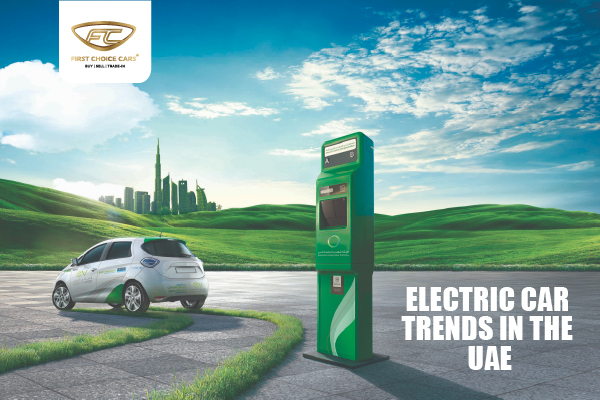
In recent years, the UAE has emerged as a leader in the Middle East’s EV market. Dubai, for example, has witnessed a surge in EV registration over the last few years. By the end of 2024, there were nearly 30,000 electric vehicles registered in Dubai alone. This increase in number is estimated to rise further, with a new peak expected in 2029.
Let’s explore some of the key trends shaping the EV industry:
Infrastructure Growth:
The capital, Abu Dhabi and Dubai have expanded their EV infrastructure, with hundreds of EV stations that are easily accessible. On top of that, initiatives such as the Dubai Electricity and Water Authority (DEWA) “Green Charger” network have significantly increased charging availability.
Luxury and Performance:
The UAE’s high-income population has fueled demand for premium EV brands like Tesla, Porsche, and Mercedes-Benz, which combine performance with cutting-edge technology.
Government Support:
The UAE government has since promoted many initiatives, such as free EV registration, toll exemptions, and free parking. Some of the initial incentives have now been removed, but there are still many benefits offered to EV owners. The UAE also plans to mandate EV inclusion in government fleets by 2030.
Corporate Adoption:
Companies in logistics, ride-hailing, as well as public transport are transitioning to electric fleets, further boosting the market.
What Will the EV Trend be in 2025?
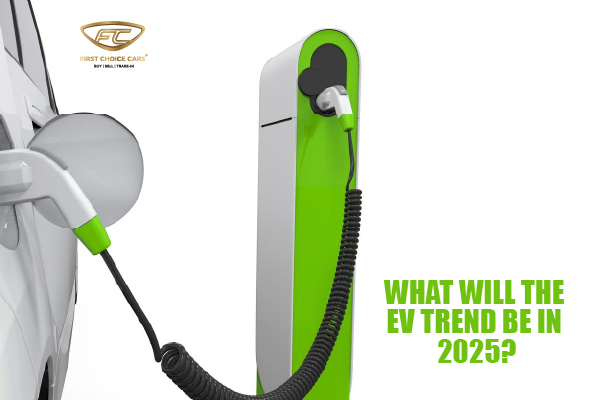
While it is hard to say what exactly awaits the EV industry, it is certain that the sales won’t slow down. More and more customers are choosing to opt for environmentally friendly solutions, including the type of car they drive. Seeing a Tesla or any other EV on UAE roads has become a common sight over the last few years, and the trend will certainly continue.
The UAE is investing significant amounts to support the EV infrastructure, with charging stations available in malls, petrol stations, and other public places, making them easily available and convenient. EV owners can charge their vehicles while shopping, which adds to the comfort and satisfaction.
However, it has now been observed that the surge in EV numbers has limited the infrastructure when it comes to long-distance travel inside the country. Most of the remote areas lack the appropriate charging availability, but the UAE is sure to address this issue in the near future.
What is The Trend in EVs in the UAE?
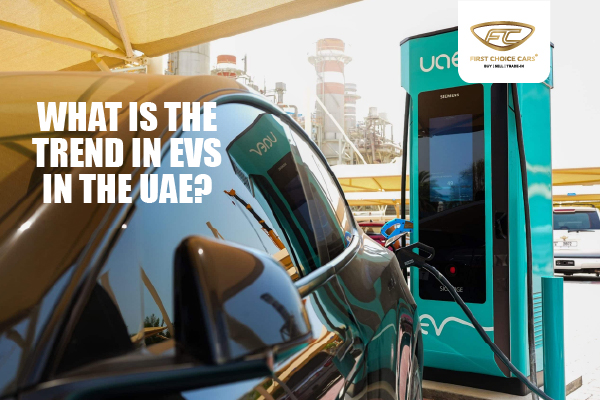
The UAE’s EV market is driven by a mix of environmental awareness, government policies, and a shift in consumer preferences. Current EV trends in the UAE include:
Fleet Electrification:
Taxi services, like Careem and Uber, have already introduced electric vehicles to their fleet, while public buses in Dubai are moving toward full electrification.
EV Charging Technology:
The UAE is investing in ultra-fast chargers capable of recharging a vehicle in minutes. Besides, many businesses for EV infrastructure are setting up in the UAE due to the market potential and government support.
Sustainability Practices:
The UAE’s leadership in sustainability, exemplified by initiatives like the UAE Net Zero by 2050 strategic initiative, continues to drive EV adoption.
It has been announced by the UAE Ministry of Energy and Infrastructure (MoEI) that they plan to have 50% of all the vehicles on UAE roads electric by the year 2050. This has further been bolstered by Dubai’s target of having 42,000 EVs on its roads by 2030, which is approximately six times the current number of electric vehicles in the Emirates.
It is interesting to note as well that the UAE government has already transitioned about 20% of its fleet to EVs.
How Big is the EV Market in the Middle East?
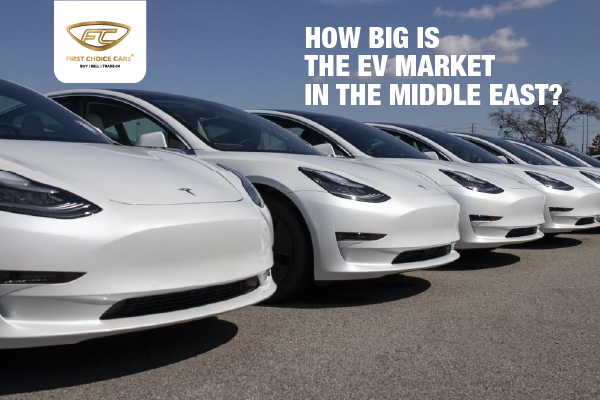
The Middle East market in EV is growing significantly, with the UAE leading in charge. The number of EVs on the UAE roads is only expected to rise in the following years, with projections of nearly 45,000 electric vehicles on the roads of Dubai alone by 2030.
These ambitious goals are in line with the UAE’s decarbonization targets and are essential in improving health outcomes, lowering pollution emissions, and reducing the noise in urban areas.
Regional Leader:
UAE accounts for the largest share of EV sales in the Middle East, while China still remains the number 1 country in the world when it comes to EV sales.
Emerging Players:
Countries like Saudi Arabia are also investing heavily in EV production and infrastructure, including the establishment of the first Middle Eastern EV brand, Lucid Motors.
Projected Growth:
The Middle East EV market is expected to grow at a compound annual growth rate (CAGR) of over 30% between 2024 and 2030.
What is The EV Prediction for 2030?

With electric vehicle sales growing on a global scale, we can expect several changes in the market over the next few years. While some may still be a matter of speculation, it is certain that EV car makers are working hard to try and overtake the automotive market with its traditional and somewhat obsolete trends:
- Sales Rise: All over the world, EV sales are expected to rise, with predictions climbing up to 69,7% by 2035, which would translate into 71.6 million units in 2035 from the current 14.2 million in 2023.
- Material Costs: It is expected that battery costs will decline in the future, making space for new models, and that would contribute to an increase in EV sales.
- Infrastructure Improvement: Charging EV stations will rival petrol stations in availability, making EVs more convenient.
- Integration with Renewable Energy: Solar and wind power are expected to become integral in powering charging stations, reducing the environmental impact of EVs.
Looking ahead to 2030, many EV car manufacturers are excited about the future as many developments in the industry are anticipated to change the way EVs shape the automotive market. Not only that, but we can already see traditional car manufacturers adopting their business to the rising trends, with Hyundai as an example, who have sold a whooping 42% in sales in May 2023, making Ioniq 5’s best sales month ever.
What is The Biggest Problem With EVs?
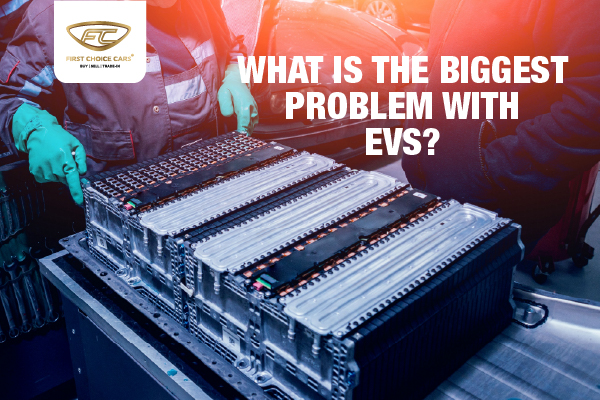
While there are many benefits that EVs offer to consumers, there are some challenges that persist, and those include the following:
- Infrastructure Limitation: As we have already discussed, the accessibility of charging stations is excellent in cities, but it is a big issue on remote roads and in some areas. The same is the problem in the UAE, with many long-distance roads between the emirates still lacking adequate charging infrastructure.
- Battery Costs: Another problem in the EV industry is certainly the high cost of battery production. The high production price makes electric vehicles more expensive, but it is relieving to know that the prices are gradually decreasing, making them more accessible and affordable for larger masses.
- Recycling Challenges: The disposal and recycling of EV charging batteries pose environmental risks.
Overview of Popular EV Brands
With many electric vehicles becoming more available, it is no wonder we are seeing an increase in models on the UAE roads. Here are the top 5 most popular EV models in the UAE:
- Tesla Model 3
- Porsche Taycan
- Nissan Leaf
- Hyundai Iqon 5
- Lucid Air
Conclusion
The UAE is certainly at the forefront of the EV revolution in the Middle East, with its government, businesses, and citizens collectively driving change. By 2025, the EV market in the UAE will be more accessible, technologically advanced, and aligned with sustainability goals.
With a strong foundation and clear vision, the UAE is set to inspire the region as it transitions to a greener, more sustainable future. Whether you are an investor, a business owner, or a consumer, now is the time to explore the opportunities within the EV market in the UAE.
Disclaimer: All information, including pricing, vehicle details, and legal requirements, is accurate at the time of publication but may be subject to change due to market conditions or policy updates. While First Choice Cars makes every effort to ensure the accuracy of the information provided, we hold no responsibility for any errors, omissions, or outdated content. We recommend contacting our team directly to confirm the latest details before making any decisions.
